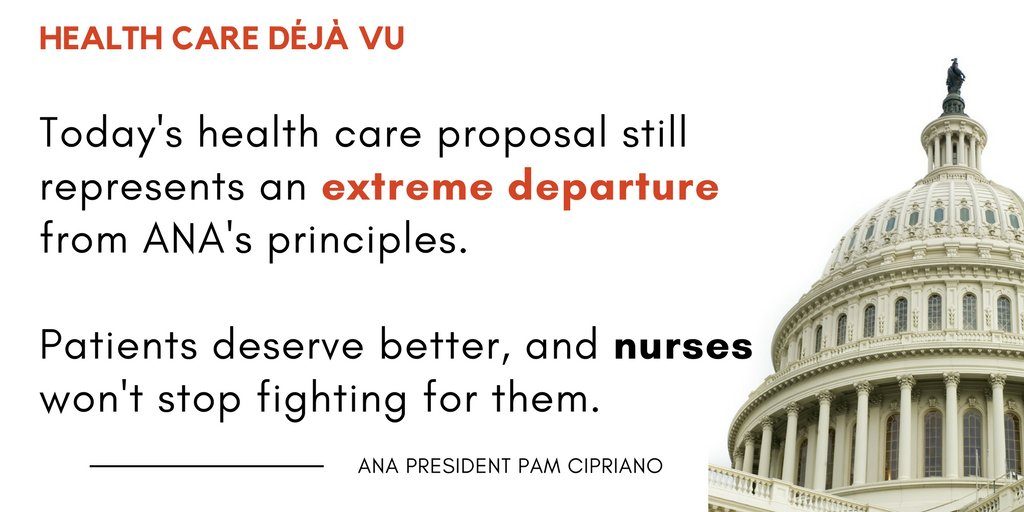So what’s the new plan? Prior to the 4th of July recess, Leader McConnell delayed the vote on the Better Care and Reconciliation Act (BCRA), which would get rid of the “individual mandate” implemented by the Affordable Care Act (ACA) and cap funding for Medicaid, among other major provisions. The bill includes tax credits that help people pay for coverage which are tied to income, instead of just age. It also removes taxes on high-income Americans that help pay for the ACA. However, it keeps the “stay on your parents’ plan until you’re 26 years old” rule and the rule that says insurance companies can’t charge people more if they have pre-existing conditions. A lot of people didn’t like version 1, so today, Leader McConnell revealed BCRA 2.0 in an attempt to reach 50–the magic number of votes it would take to pass this legislation through the Senate. This new language includes an unpopular amendment from Sen. Ted Cruz (R-TX), an original opponent of version 1.
BCRA 2.0 (via the Senate Committee on the Budget):
- Out of Pocket: An additional $70 billion is dedicated to driving state-based reforms, which could include help with driving down premiums through cost-sharing, Health Savings Accounts (HSA), and other innovative ideas to help pay for health care costs. This is in addition to the $112 billion in funding already in the original bill.
- Heath Savings Accounts for Premiums: A provision has been included in the bill that would allow people to use their HSAs to pay for their premiums.
- Resources for Combating Opioid Epidemic: $45 billion is dedicated for substance abuse treatment and recovery.
- Skeleton Plans: Individuals who enroll in catastrophic plans would be eligible for the tax credit subject to eligibility requirements. These plans are higher deductible plans that cover three primary care visits a year and have federal protections that limit an individual’s out-of-pocket costs.
- Taxes: Does not include 3.8% net investment income tax, the additional Medicare Health Insurance (HI) Tax, or the remuneration tax on executive compensation for certain health insurance executives.
- Medicaid Revisions: Disproportionate Share Hospital (DSH) changes the DSH calculation from per Medicaid enrollee to per uninsured.
- Public Health Emergency Funds: Will not be counted toward the per capita caps or block grant allocations for the declared period of the emergency.
- Expanded Block Grant Option: States will be allowed to add the expanded Medicaid-eligible population under the block grant if they opt to do so.
- High Risk Population: Payments could be made available to specified health insurers covering high-risk individuals enrolled in the qualified health plans on the Affordable Care Act’s Individual Exchange.
What do the Democrats think? Yesterday, in anticipation of the release of BCRA 2.0 the House Democrats introduced their answer to healthcare reform.
“A group of House Democrats has produced its own healthcare reform proposal to improve upon the nation’s healthcare system shaped over the last 7 years by the Affordable Care Act (ACA). The New Democrat Coalition’s Affordable and Accessible Health Care Task Force has come up with the Solutions Over Politics plan to build upon the healthcare infrastructure put in place by the ACA. This plan would include an annual $15 billion reinsurance fund to pay for high-cost enrollees, continue the ACA’s cost-sharing reduction payments, increase outreach to boost enrollment in marketplace plans, implement a Medicare buy-in option for older Americans not yet eligible for Medicare, expand premium tax credits to help individuals pay insurance premiums, and expand the availability of catastrophic health plans to encourage younger, healthy people to buy coverage.” (via The Hill)
What does ANA think? We still don’t like it.
 What happens next? The CBO will evaluate Version 2.0 and release a score on Monday. The CBO’s report will assess the impact of the new bill and predict how much it will cost or save the Federal Government. In the past, this hasn’t gone so well. The Senate is expected to vote on the bill soon (if Leader McConnell can rally the votes).
What happens next? The CBO will evaluate Version 2.0 and release a score on Monday. The CBO’s report will assess the impact of the new bill and predict how much it will cost or save the Federal Government. In the past, this hasn’t gone so well. The Senate is expected to vote on the bill soon (if Leader McConnell can rally the votes).
What are WE doing and what can YOU do? ANA will continue to urge the Senate to #ProtectOurCare. If you haven’t done so already, be sure to call your Senator and remind them to put patients first!
